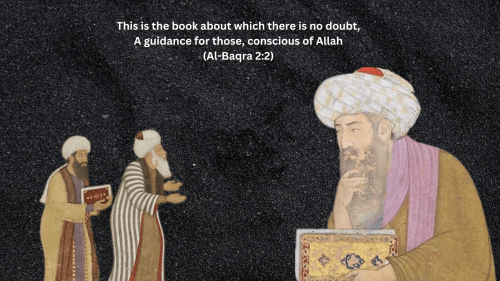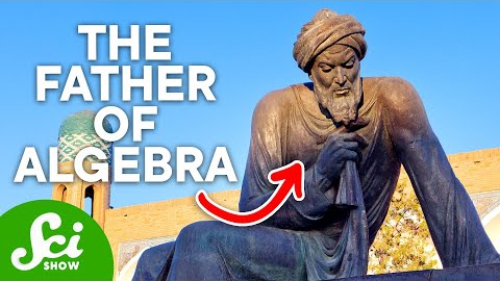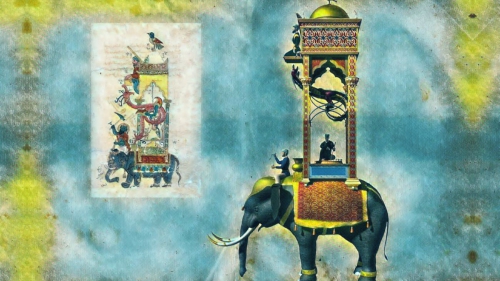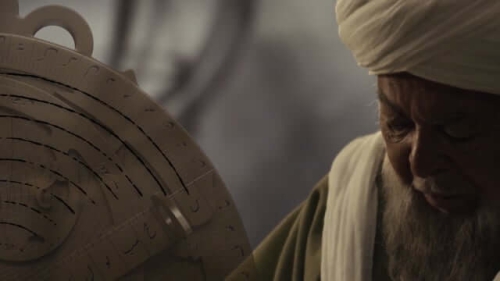How to Do Allah's 'Hamd (Appreciation)?
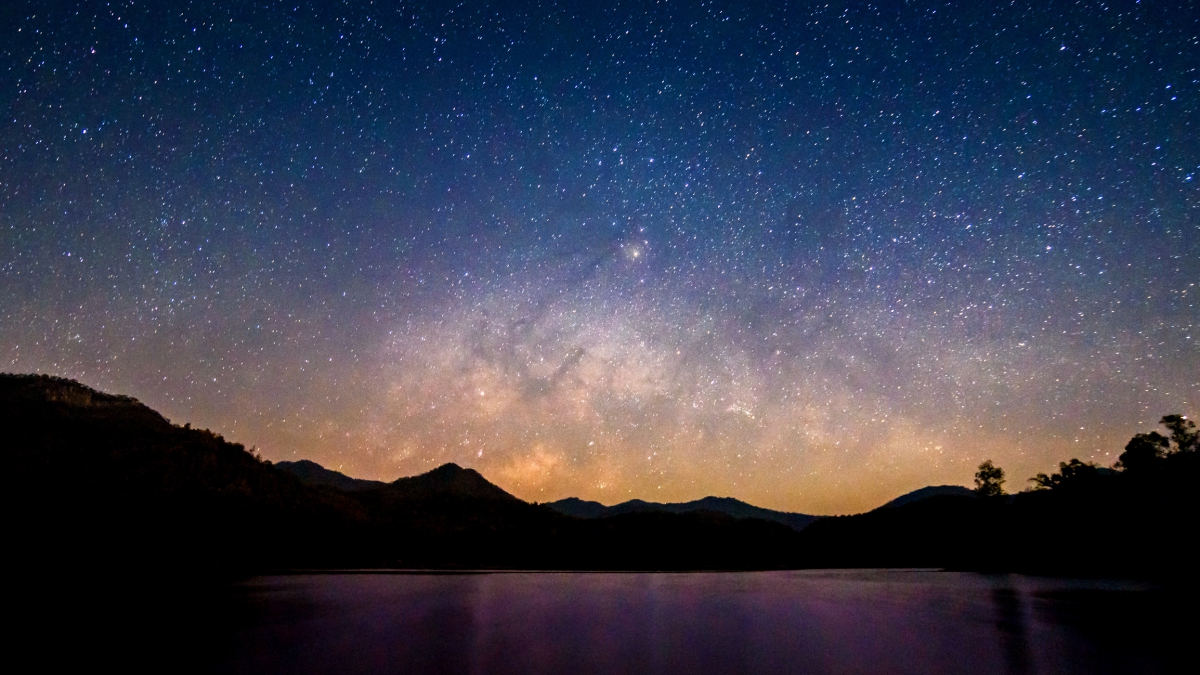
We cannot know or even imagine anything about Allah – who He is, what is His essence? Allah is beyond human thought and comprehension:
لَّا تُدْرِكُهُ الْأَبْصَارُ وَهُوَ يُدْرِكُ الْأَبْصَارَ ۖ وَهُوَ اللَّطِيفُ الْخَبِيرُ
(6:103) – No human vision can encompass Him, whereas He encompasses all human vision: for He alone is unfathomable, all-aware. [Asad]
A finite mind cannot comprehend even infinite time what to say of comprehending Allah, the creator of time and the Universe from nothing. That is the reason Allah has introduced Himself through His attributes which start with the word "AL" meaning that these attributes are exclusive to Himself.
So, forming a mental concept of Him cannot produce the correct feeling of His appreciation because appreciation can only be done for a visible concrete thing. Allah's appreciation i.e., حَمْدُ ('Hamd), therefore, can only be done through his infinitely masterful and most beautiful creation. We know that appreciation of someone can be done only through his masterpiece of creation.
Allah has Himself said: وَإِن مِّن شَيْءٍ إِلَّا يُسَبِّحُ بِحَمْدِهِ
(17:44) – and there is not a single thing but extols His limitless glory and praise. [Asad]
It is clear from this verse that Allah's حَمْدُ ('Hamd) can be done only by pondering on His creation. This is the reason that one of the characteristics that are mentioned in the Quran about مومنین (Momineen) is: الْحَامِدُونَ (9:112) – i.e., those who do حَمْدُ ('Hamd). When this is the case, then it is incumbent on مومنین (Momineen) to deeply ponder on the laws of nature and try to discover them; and then make the concrete benefits obtained from such discoveries for the benefit of the entire humanity.
The Quran says:
إِنَّ فِي خَلْقِ السَّمَاوَاتِ وَالْأَرْضِ وَاخْتِلَافِ اللَّيْلِ وَالنَّهَارِ لَآيَاتٍ لِّأُولِي الْأَلْبَابِ ; الَّذِينَ يَذْكُرُونَ اللَّـهَ قِيَامًا وَقُعُودًا وَعَلَىٰ جُنُوبِهِمْ وَيَتَفَكَّرُونَ فِي خَلْقِ السَّمَاوَاتِ وَالْأَرْضِ رَبَّنَا مَا خَلَقْتَ هَـٰذَا بَاطِلًا سُبْحَانَكَ فَقِنَا عَذَابَ النَّارِ
(3:190-191) – Verily, in the creation of the heavens and the earth, and in the succession of night and day, there are indeed messages for all who are endowed with insight, [and] who remember God when they stand, and when they sit, and when they lie down to sleep, and [thus] reflect on the creation of the heavens and the earth: "O our Sustainer! Thou hast not created [aught of] this without meaning and purpose. Limitless art Thou in Thy glory! Keep us safe, then, from suffering through fire!" [Asad]
So, مومنین (Momineen), after reflecting upon the creation of the heavens and the earth, entreat: O our Sustainer! You have not created this Universe in vain or for destructive purposes. Your Schemes of things are much above any flaw. Grant us the insight to understand the functioning of these things to benefit from them and remain safe.
The Quran's definition of عُلَمَاءُ (Ulema) or scholars
Our concept of عُلَمَاءُ (Ulema) or "scholars" is quite different from that of the Quran's. And one will be surprised to know whom the Quran calls scholars? Well, the people the Quran calls scholars are, in fact, those whom we call scientists now! The Quran says:
أَلَمْ تَرَ أَنَّ اللَّـهَ أَنزَلَ مِنَ السَّمَاءِ مَاءً فَأَخْرَجْنَا بِهِ ثَمَرَاتٍ مُّخْتَلِفًا أَلْوَانُهَا ۚ وَمِنَ الْجِبَالِ جُدَدٌ بِيضٌ وَحُمْرٌ مُّخْتَلِفٌ أَلْوَانُهَا وَغَرَابِيبُ سُودٌ ﴿﴾ وَمِنَ النَّاسِ وَالدَّوَابِّ وَالْأَنْعَامِ مُخْتَلِفٌ أَلْوَانُهُ كَذَٰلِكَ ۗ إِنَّمَا يَخْشَى اللَّـهَ مِنْ عِبَادِهِ الْعُلَمَاءُ ۗ إِنَّ اللَّـهَ عَزِيزٌ غَفُورٌ
(35:27-28) – ART THOU NOT aware that God sends down water from the skies, whereby We bring forth fruits of many hues - just as in the mountains there are streaks of white and red of various shades, as well as (others) raven-black, and (as) there are in men, and in crawling beasts, and in cattle, too, many hues? Of all His servants, only such as are endowed with [innate] knowledge stand [truly] in awe of God: [for they alone comprehend that] verily, God is almighty, much-forgiving. [Asad]
Obedient and rational people wonder why such benevolent, clear, and eye-opening knowledge was opposed? And even now, it continues to be opposed by traditionalists. They opposed Sir Syed, who advocated acquiring knowledge of Nature. They declared that he has become Murtad and should be killed. As if that was not enough, they even went to Makkah and got fatwa of Murtad against Sir Syed from the Imam of Kaaba.
However, this is not all that strange. People's mindsets and attitudes take a long time to change. This can only be eliminated by following Divine Laws. Such creations of nature are living proof of the working of Divine Laws. But only those who reflect over them with intellect and reason bow in submission to Divine Laws. Only they are the ones they deserve to be called عُلَمَاءُ (Ulema) or "scholars"; and only they can comprehend how overpowering and supreme Allah's Law is. Whoever lives accordingly is provided with sufficient means of development and protection.
Conquering the forces of Nature
We see here clearly whom the Quran calls عُلَمَاءُ (Ulema) and whom we call Ulema?! The Quran has used this term in precisely the same sense as we use it now for scientists. It says about them at another place:
إِنَّ فِي السَّمَاوَاتِ وَالْأَرْضِ لَآيَاتٍ لِّلْمُؤْمِنِينَ
(45:3) – Behold, in the heavens as well as on earth there are indeed messages for all who [are willing to] believe. [Asad]
The signs of Allah's power and wisdom are spread throughout – in the heavens and on earth; but only people who have conviction in the truth of His Laws, i.e., the مُؤْمِنِينَ – Momineen, can perceive them. It is their obligation and duty to think deeply about the Universe. By doing this, their faith will increase in the Creator and in His creation; in His attributes; and in His Almighty power. This will lead to genuine praise and actual appreciation ('Hamd) of Allah.
The praise of Allah cannot be done by simply reciting His words of attributes on the beads of a rosary or on the fingers. The praise of Allah can only be done consciously and intellectually that emanates deep from inside the heart, that comes from deep pondering on the forces of nature, and in trying to conquer. The مومنین (Momineen) prove it by their steadfast actions and unwavering commitment to the divine program.
At another place, it is said:
إِنَّ فِي اخْتِلَافِ اللَّيْلِ وَالنَّهَارِ وَمَا خَلَقَ اللَّـهُ فِي السَّمَاوَاتِ وَالْأَرْضِ لَآيَاتٍ لِّقَوْمٍ يَتَّقُونَ
(10:6) – for, verily, in the alternating of night and day, and in all that God has created in the heavens and on earth there are messages indeed for people who are conscious of Him! [Asad].
So, these deep thinkers in the creation of Allah are called عُلَمَاءُ (Ulema); they are called مُؤْمِنِينَ (Momineen); they are called مُتَّقِينَ (Muttaqeen). From this one might say: Well, from this point of view then, the scientists of the West should be called عُلَمَاءُ (Ulema). So, are they also مُؤْمِنِينَ (Momineen); are they also مُتَّقِينَ (Muttaqeen)? This question is important enough that it is worth serious attention.
Are Western scientists then مُؤْمِنِينَ (Momineen)?
Well, along with the requirement for deep thinking and research into the signs spread throughout the Nature; the Quran also emphasizes one more thing that is required for Allah's appreciation. All of the material forces of Nature are for the material needs of all human life on earth. The Quran says that, along with conquering the forces of nature, proper guidance is also required for the long human journey on Earth. And this guidance comes from divine revelation whose last chain is securely preserved in the Quran (6:115). Allah has made His Book an expression of appreciation as well:
الْحَمْدُ لِلَّـهِ الَّذِي أَنزَلَ عَلَىٰ عَبْدِهِ الْكِتَابَ وَلَمْ يَجْعَل لَّهُ عِوَجًا
(18:1) – All praise is due to God, who has bestowed this divine writ from on high upon His servant and has not allowed any deviousness to obscure its meaning [Asad].
The guidance that has been revealed to the Prophet (PBUH) is a code of life that takes humanity on a straight path without any pitfalls. So, two things are required for حَمْدُ ('Hamd): 1) to conquer the forces of Nature and 2) to use the Nature's powers thus obtained for the benefit of entire humankind according to the values given in Allah's guidance, which is now securely preserved in the Quran and is available nowhere else (15:9). Thus, only when both these conditions are met that a people would be able to do the حَمْدُ ('Hamd) of Allah; and only then they could be called حامدون ('Haamidun). Otherwise not.
The first and foremost Devotee (PBUH) of Allah
The person, who for the first time, did Allah's حَمْدُ ('Hamd) like this was the Prophet (PBUH). Allah has called him (PBUH) احمد (Ahmad) (61:6), i.e., one who does Allah's حَمْدُ ('Hamd) very profusely. He (PBUH) was also called محمّد (Muhammad) (48:29) and was given the high position of محمود مقام (17:79) due to his supreme accomplishments in improving the human condition by actually implementing a system of life-based on the revealed guidance; by practically establishing a system for the benefit of human society as a whole based on Allah's universal code of life. And what was the original result of this new system? Well, a nation that was engaged in tyranny and oppression of human beings was rooted out. The entire world at the time rose in universal praise at the establishment of this universal revolutionary system at the hands of the Prophet (PBUH). When the whole world was shrouded in darkness, this extraordinary achievement came as the sunshine of freedom for the oppressed humanity resulting in universal appreciation and praise:
فَقُطِعَ دَابِرُ الْقَوْمِ الَّذِينَ ظَلَمُوا ۚ وَالْحَمْدُ لِلَّـهِ رَبِّ الْعَالَمِينَ
(6:45) – and [in the end,] the last remnant of those folk who had been bent on evildoing was wiped out. For all praise is due to God, the Sustainer of all the worlds. [Asad]
This kind of universal improvement in the human condition by breaking the chain of human subjugation and tyranny requires power to root out evil forces that perpetuate such inhuman conditions. Therefore, the Quran has mentioned that both sources – of حَمْدُ ('Hamd) and of power – flow from Allah.
It says: لَهُ الْمُلْكُ وَلَهُ الْحَمْدُ
(64:1) – His is all dominion, and to Him all praise is due [Asad].
It is necessary to fully understand why the Quran has mentioned the two extraordinary attributes of Allah – الْعَزِيز (Al-Aziz) and الْحَكِيمِ (Al-Hakim) – together. الْعَزِيز (Al-Aziz) means the one who has all the power and authority. But power and authority can be gained by tyranny and oppression as Genghis and Hulagu had done, as Hitler had done, as all the Roman rulers had done, as all the overt and covert dictators of today have done. But the Quran mentions الْحَكِيمِ (Al-Hakim) and الْعَزِيز (Al-Aziz): Power with intellect, wisdom, and rationality. If a nation establishes power and authority along with wisdom and rationality – and when its people reflect on these two attributes of Allah – then that nation will be called as the nation possessing these two attributes of Allah. If these two attributes remain separated and mutually exclusive, then not only the divine system (of governance) cannot be established in that nation; but it does not even treat humans as human.
Beauty as well as power are at the root of the Universe and its functioning. The system of the Universe will collapse if there was no power along with its beauty. In the words of Allama Iqbal:
It is impossible to protect flower;
If its thorn is weaker and softer!
How could iron be worth power?
If it transforms and turns softer!
[Armaghan-e-Hijaz]
On the other hand, if the power does not have the appreciative aspect of beauty, then it turns into tyranny and oppression. Again, in the words of Iqbal: If the دین (Deen) – the universal code of life – is removed from politics, then the only thing that remains is Genghis-ism.
Topics: Dhikr (Rememberance Of Allah), Muslim Scholars
Views: 4429
Related Suggestions









